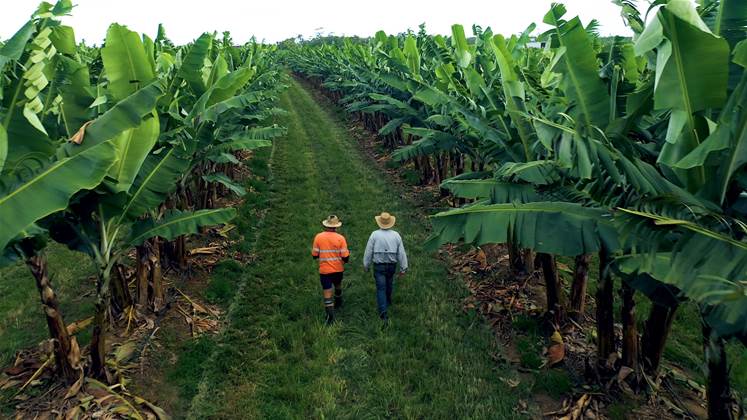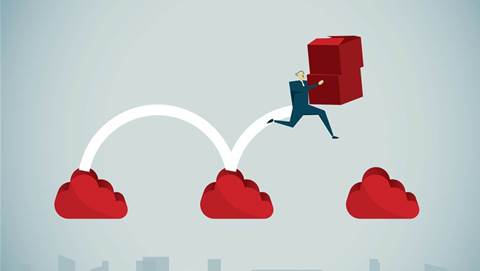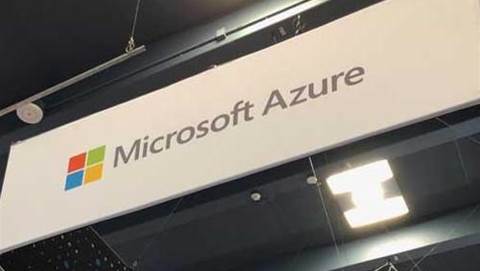Bartle Frere Bananas, which supplies Aldi and other chains, is trialling radiofrequency identification (RFID) tags on bunches of bananas in its paddocks and then on cartons as the fruit moves through the supply chain.

Owner and managing director Gavin Devaney told iTnews that the trials build on a multi-year partnership with Hitachi Vantara, which includes access to the vendor’s Lumada manufacturing insights product.
Early work with the vendor focused on environmental sensing, monitoring groundwater levels, moisture and other soil conditions.
The grower runs a weather station onsite that feeds live data into a dashboard that allows the farm to work out how much it needs to irrigate its paddocks on any given day, and to meet environmental management best practices.
However, it is now extending its use of sensing technology through a new set of trials aimed at improving its understanding of where fruit is in its paddocks, and quality assurance of fruit from the ‘paddock to plate’.
In the first instance, this involves RFID tagging bunches of bananas in the paddocks, allowing them to be more easily located.
Devaney said that bunches undergo two initial processes in the paddocks: bell injection, where they are chemically treated “to stop a moth laying grubs in the bell that causes a scab all over the fruit”; and bagging, which involves physically covering the bunch, again to protect the fruit.
An RFID tag is attached to the bunch after bagging; the tag can be located and read using a “glove” device.
Devaney said the tags made it easier to locate the fruit in a large paddock and to understand how each bunch had been treated.
“Once the bunch is cut, harvested, and brought back to the shed, the RFID tag is removed,” Devaney said.
The bunches are packed into cartons, to which a new GPS and condition monitoring tag is affixed that can be used by the farm to monitor fruit as it moves through the supply chain.
Devaney said that prior to Covid, he or someone from the farm would travel to a distribution centre or marketplace in-person for quality assurance purposes, checking on the condition of bananas, how they had ripened, and where they were being sold.
However, he said that the grower also had to put its trust in “the person receiving” the fruit to understand if it was being handled correctly.
The tags under trial will allow the grower to collect more data from the supply chain itself, providing an additional level of quality assurance for the produce.
Devaney said his interest in sensing technology was sparked by his involvement in the Australian national livestock identification system about two decades ago, which was one of the first major RFID projects in Australia and use cases around food traceability.
“When I was at university in 2000, there was a very big push for meat standards and being able to track your meat from paddock to plate,” he said.
“I was a part of the national livestock identification system creation so I worked along with two officers that created and delivered that program. I enjoyed that process.”
Devaney said that doing the same for bananas would increase consumer confidence in the product and show the quality assurance standards that farms were striving to meet.
The case study was showcased during a presentation at the COP26 climate change conference in Glasgow.

























